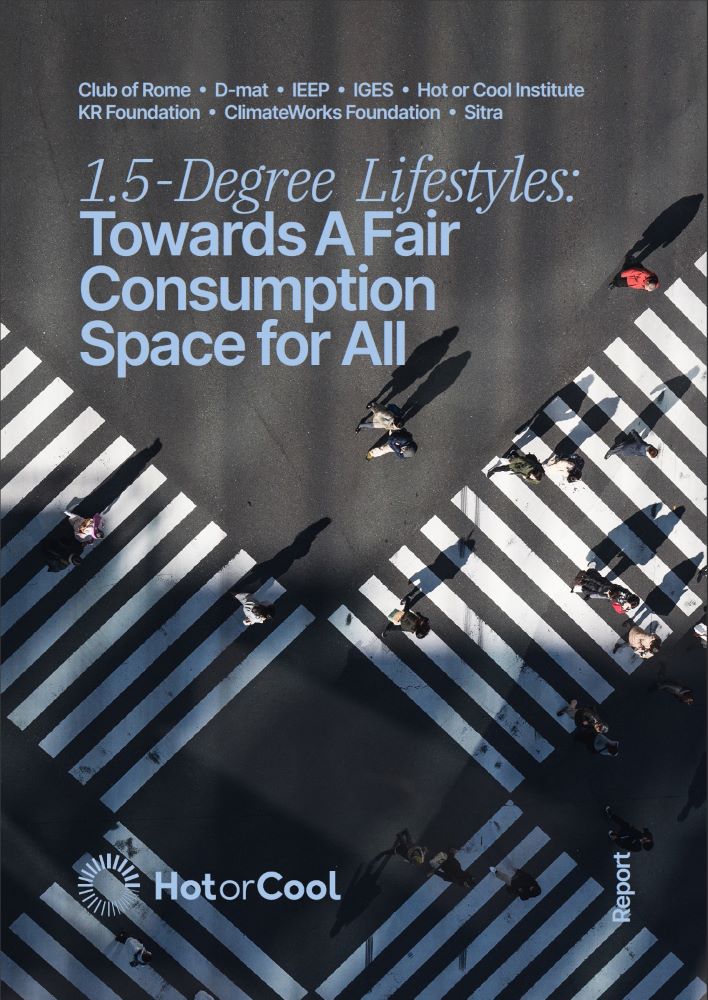Changes in predominant lifestyles, especially in high-consuming societies, will determine whether we meet commitments in the Paris Agreement and avoid dire consequences of climate change, as warned by the IPCC. And yet in a world with a limited and fast-shrinking global carbon budget, coupled with vast inequalities, how do we allocate the remaining carbon allowance in a manner that is fair while drastically decreasing our footprints within a limited time frame to avoid irreversible ecological damage?

This event launches the new report, 1.5-Degree Lifestyles: Towards a Fair Consumption Space for All, which addresses this question head on. It builds on the first 1.5-Degree Lifestyles report that established quantifiable global targets for lifestyles carbon footprints; the new report expands the scope to make it more applicable to policy design, and practical program implementers.
This new report is based on data from Canada, Finland, United Kingdom, Japan, China, Turkey, South Africa, Brazil, India, and Indonesia. It analyses these countries for priority high-impact consumption domains, and for emissions gaps between current and target levels of consumption. It then suggests low-carbon lifestyles actions and estimates their potential for reducing impacts.
Crucially, the report outlines potential scenarios for living within the 2030 target of 2.5-tons per person, showing that we need both systems change and behavior change if we are to achieve this critical goal.
Moderator: Andrew Simms, coordinator, Rapid Transition Alliance
Speakers:
- Johan Rockström, lead researcher, Planetary Boundaries; Director, Potsdam Institute for Climate Impact Research
- Sandrine Dixson-Declève, Co-President, The Club of Rome
- Lewis Akenji, lead author, 1.5-Degree Lifestyles; Managing Director, Hot or Cool Institute
- Yamina Saheb, Lead Author IPCC; Lausanne university
- Jyrki Katainen, President, Sitra (tbc)